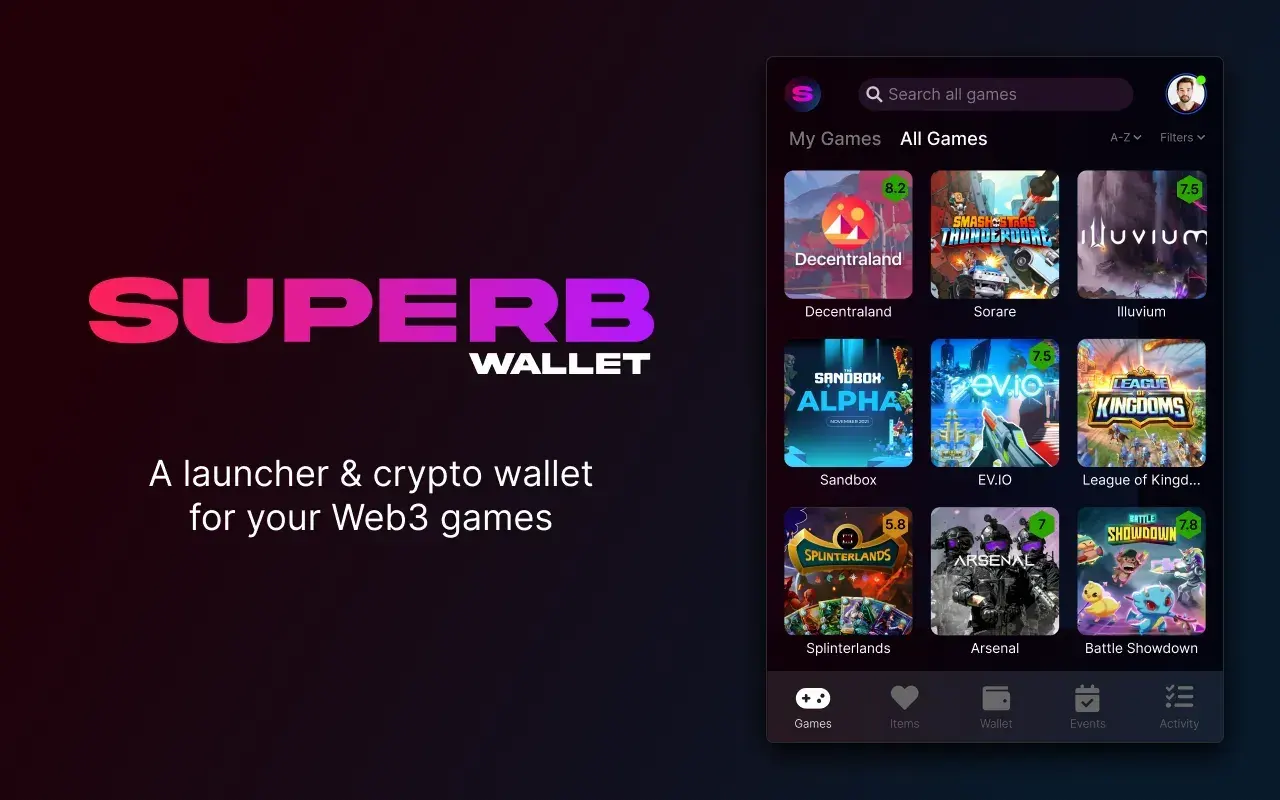
The gaming industry has undergone many advancements shaping how we play and interact with games. In recent years, we’ve seen an enormous jump forward in GPUs, game engines, and a shift towards digital distribution. With the rise of Web3 technology, blockchain, and AI, we’re on the cusp of another revolution redefining the gaming landscape. I am excited to explore the potential of these technologies and how they will give gamers the freedom, flexibility, and new opportunities they crave.
Web3 and the Decentralized Gaming Experience
Once the internet came, we had BBS, the first Mosaic browser, and got our first multiplayer gaming experiences. Web3 refers to the decentralized internet, where users have control over their data and digital assets, and it’s set to revolutionize how we interact with games. It’s the jump of a similar scale and changes in how game publishers will do their business. It’s very similar to how Spotify changed the music industry. Gaming platforms powered by Web3 technology will enable gamers to truly own their digital assets, such as in-game items, skins, and even the games themselves. This will create a thriving secondary market where players can buy, sell, rent, and trade digital assets without significant restrictions, unlocking new revenue streams and promoting interoperability between games and platforms, also indie developers and game studios.
Blockchain: Securing Digital Assets and Ensuring Authenticity
As the backbone of Web3, blockchain technology is the key to securing digital assets and providing transparency in gaming transactions. This must be seamless and behind the curtains, for the users and gamers to succeed. Blockchain’s decentralized nature ensures that digital assets are securely stored and cannot be tampered with or duplicated, thus creating a more reliable and trustworthy gaming ecosystem. This technology also enables the creation of non-fungible tokens (NFTs), representing unique digital assets like rare in-game items, limited edition skins, or collectables. As these digital assets grow in value, they become digital art, with their provenance and ownership verifiable on the blockchain. While NFTs are relatively new, they will evolve further, but this is just the beginning.
AI: Enhancing Gaming Experiences and Personalization
Artificial intelligence (AI) is already playing a significant role in the gaming industry; more intuitive NPCs that you can talk & chat with it all create more immersive and realistic experiences. As AI continues to evolve, we can expect it to play an even more prominent role in shaping the future of gaming.
For instance, AI-powered game characters and NPCs could learn from and adapt to players’ behaviours, creating highly personalized and engaging experiences.
Additionally, AI can be utilized for procedural content generation, allowing developers to create vast, unique, and diverse game worlds that cater to each player’s preferences.
Embracing Change and the Future of Gaming
While the idea of Web3, blockchain, and AI in gaming might seem daunting to some, their potential benefits are immense. We must embrace the change and have our word in it. If we reject everything new, we cannot change the future, but if we give feedback and have our say, we can make the future. Gamers can truly own their digital assets and have greater control over their gaming experiences. Developers will have access to new revenue streams and creative opportunities, and the gaming industry will become more transparent, secure, and interconnected.
As with any technological revolution, there will be challenges and growing pains along the way, but one thing is sure: the future of gaming is here, and embracing these advancements will lead to a more inclusive, diverse, and thriving gaming community.
Superb Wallet is one example of that future. Let’s build that together! Join the alpha launch waitlist at https://superb.games/wallet and tell me what you think of it!
This article originally appeared on my Medium. You can also read all of my articles here on my web.